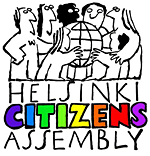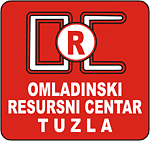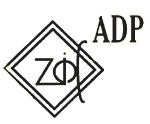Partners
-
Turkey | Helsinki Citizens’ Assembly – hCa
The experience of the Helsinki Citizens’ Assembly in transnational peace building efforts across Europe, Balkans and Turkey started with the second half of the 1980s, as parts of the West European peace movement developed a strategy of ‘detente from below’, making links with opposition groups in Central and Eastern Europe. Many of the techniques of transnational networking – providing transnational support to groups in difficult and dangerous situations, and simultaneously lobbying different governments and international institutions – were developed during this period. Helsinki Citizens’ Assembly was established in 1990 to formalize this network. The goal was to integrate Europe from below, to establish a pan-European civil society. Helsinki Citizens’ Assembly in Turkey was established formally in 1993 as part of this network. It has since been operating as an open space for interaction and dialogue between the conflicting parties throughout in Turkey. This role has earned it the reputation of a nation-wide umbrella NGO on human rights in Turkey.
-
Serbia | SeConS – Development Initiative Group
SeConS is the leading organization in the field of social inclusion in Serbia. First set of nationally specific indicators for monitoring social inclusion in line with EU methodology was developed in 2008 by SeConS experts. This task was done for Social Inclusion and Poverty Reduction Unit of the Government of RS. SeConS has been one of the leading organizations promoting social inclusion concept among policy-makers, officials from relevant institutions and CSOs in Serbia since that time. This was done through research, capacity building, mobilisation of actors, people to people actions and trough media promotion. Main results from these activities are numerous studies and policy briefs available at www.secons.net . SeConS is strongly profiled towards social and economic aspects of human security.
-
Bosnia & Herzegovina | Helsinki Citizens’ Assembly Tuzla
Helsinki Citizens’ Assembly (hCa) Tuzla / Youth Resource Centre (ORC) Tuzla is a recognized leader in the field youth in BiH, founder and partner to a number of youth and other civic networks in BiH and across the Western Balkans. It has started its activities in 1995 on the initiative and co-ordination of Helsinki Citizen’s Assembly (hCa) organisations from Banja Luka and Tuzla, and was officially founded in 2004. The organization works to connect youth’s initiatives (independent organisations, informal groups and individuals) from the whole territory of Bosnia and Herzegovina, to promote their capacities, activities and ideas, with a special focus on young people living in small communities and cities in B&H. ORC Tuzla are active participants and partners in many regional and international projects, initiatives, campaigns; concerning the minorities, gender equality, demilitarization, etc. Since 1997 to this day, thousands of young people has “passed” trough the Youth Network B&H, and many of them now have important and responsible functions in the public and political life in B&H. Currently Youth Network of B&H gathers around 120 members /youth organizations, informal youth groups, individuals.
-
Montenegro | Association for Democratic Prosperity – ZID
ZID is member of the HCA Network since 1997; one of the leading members of Montenegro civil society in providing advocacy, training and tools on issues of social inclusion, youth policies, volunteering and citizenship. It is extensively engaged in regional networks dealing with cross-cutting issues of peace-building and youth. The Citizens’ Pact for South Eastern Europe – ongoing Following the Kosovo crisis the international community created the Stability Pact for the SEE region which aimed to create an international mechanism for building peace and democracy in the Balkans. Civic activists within the close region realised that civil societies must equally be in co-operation with one another.
-
Bulgaria | The Institute for Regional and International Studies – IRIS
IRIS is an independent, non-partisan and non-profit think tank, based in Sofia, Bulgaria. IRIS is dedicated to developing regional strategies for democratic policy making and increasing international understanding of current and emerging issues in Bulgaria, the Balkans and the Black Sea area. IRIS’s programmes include producing analyses on current public policy issues and issues in the spheres of international relations and security; lobbying among decision-makers for the endorsement of adequate and efficient policy lines; networking with fellow research and activist non-governmental organisations in Bulgaria, the Balkans and the Black Sea region; and organising conferences where politicians, academia and professionals find a forum to exchange ideas and policy perspectives. In the course of more than fifteen years of existence, IRIS has accumulated a considerable knowledge base and experience in the fields of democracy building, Balkan and Black Sea security and cooperation, advocacy and networking.
-
Kosovo | Centre for Research, Documentation and Publication – CRDP
CRDP was established in 2010 with a mission to promote the mechanisms of transitional justice that can normalize local and regional relationships and aid Kosovo in addressing its history of human rights violations. The strategy used for advocating transitional justice is based on a conceptual model for Dealing with the Past (DwP) that is concerned with a societies’ right to know, right to justice, right to reparations and guarantee of non-recurrence. All activities that are pursued at the Center fit within this transitional justice framework. Through these efforts CRDP endeavors to be the focal point for transitional justice in Kosovo, representing the needs of ethnic minorities and the victims of conflict. It has focused mainly on consultations with disadvantaged groups in Kosovo, including ethnic minorities, victims of conflict, former prisoners and war veterans. In a region where cooperation between ethnic minorities has proven extremely difficult, CRDP was one of the first organizations to reach out to ethnic Serbs, Albanians and RAE communities to discuss a wide array of issues, including truth commissions, accountability, reparations and reforms.




